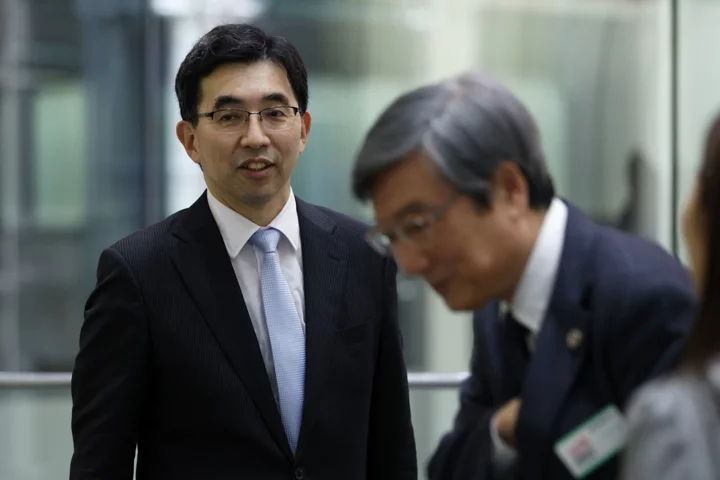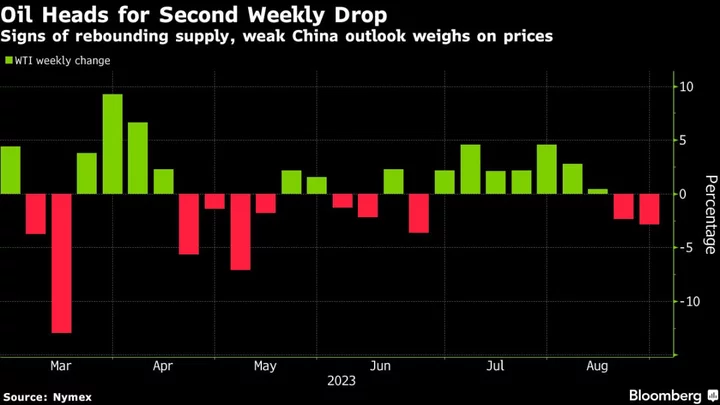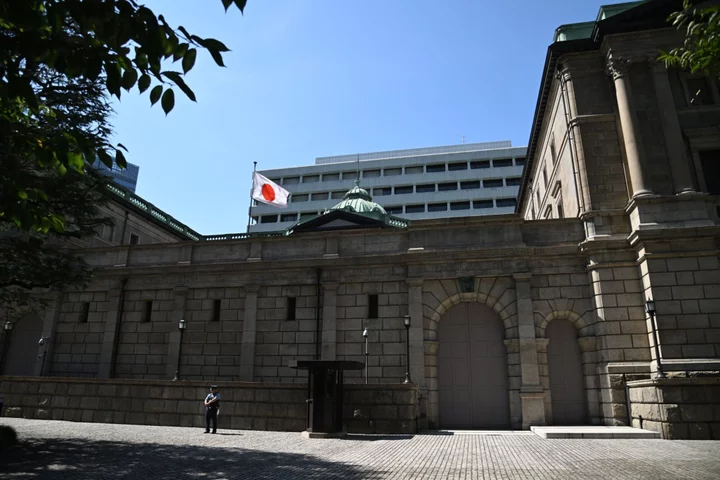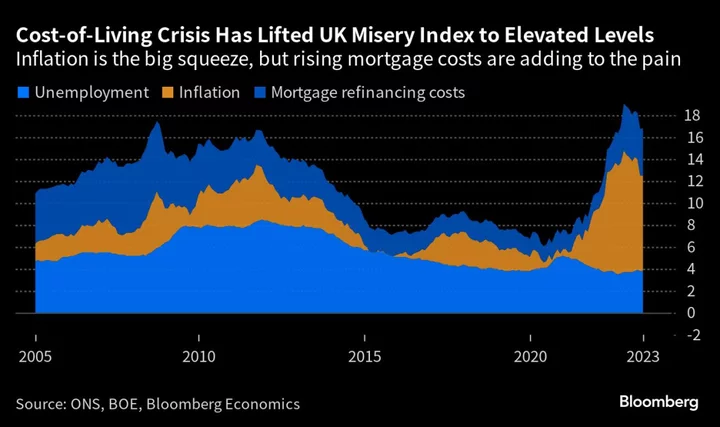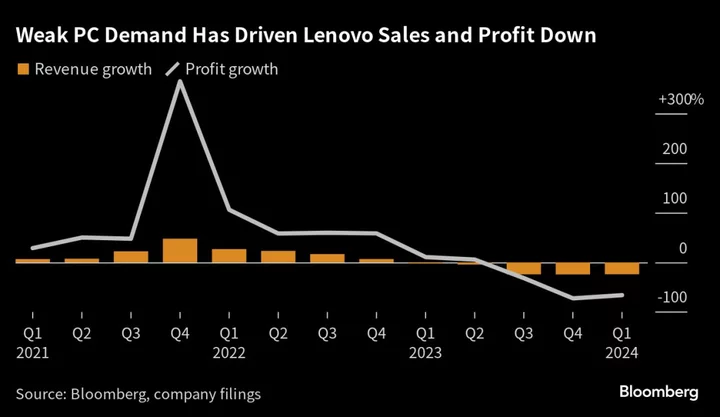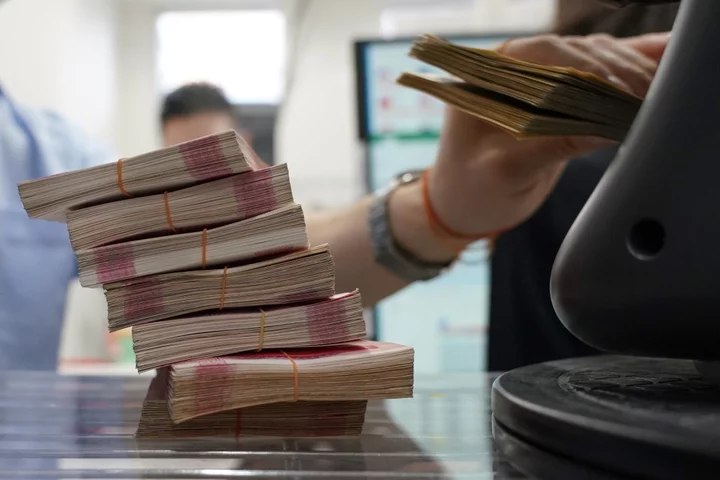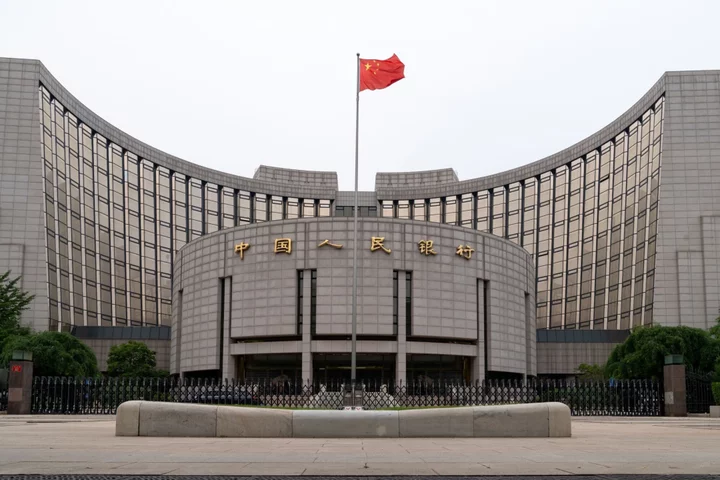Japanese online lender Rakuten Bank Ltd. says it’s better positioned than rivals to enjoy a profit boost when the Bank of Japan eventually ends its negative interest-rate policy.
A rise in short-term rates would have an immediate benefit for the newly listed bank given that many of the loans and other assets on its books have adjustable rates, Chief Executive Officer Hiroyuki Nagai said.
“I think the proportion of our assets that have floating rates is the highest among Japanese banks,” he said in a Bloomberg Television interview, without giving figures. “So for us, the end of the negative interest rate policy means a big increase in profits.”
Uncertainty remains over when the Bank of Japan will scrap the policy, which has squeezed banks’ lending margins since its introduction seven years ago. While the central bank surprised investors by easing its grip on bond yields last month, Governor Kazuo Ueda has maintained that the move wasn’t a precursor to monetary tightening, and many economists don’t expect any further changes this year.
Nagai, 58, said that even without more drastic policy moves, his bank is set to enjoy a windfall if long-term rates rise following the central bank’s tweaks to its yield curve control program. That’s because the bank’s deposits are increasing rapidly and the new money allows it to add higher-yielding bonds to its portfolio without waiting for lower-yielding notes to mature first, he said.
“In that sense, the positive impact could be bigger for us than others,” Nagai said.
The bank is a unit of billionaire Hiroshi Mikitani’s Rakuten Group Inc., and has leveraged the conglomerate’s dominance of e-commerce in Japan to attract depositors, who now have more banking choices with an influx of digital players coming into the sector.
Rakuten Bank had 13.7 million accounts as of March — the most of any Japanese digital lender — up 58% from 8.7 million three years earlier. It aims to increase the number to 25 million by March 2027, which is the equivalent of one for every five people in the country.
The stock has jumped about 39% since its April initial public offering, which was Japan’s largest debut share sale since 2018. Rakuten Group, meanwhile, has dropped more than 50% since the end of 2021 as its foray into the mobile business drains cash and fuels losses.
Nagai said the biggest opportunity for the lender comes from Japan’s shift toward cashless payments. Digital banks like his are likely to attract more users as fewer consumers rely on physical money for daily transactions, he said.
“The proportion of cashless payments is still low compared with other countries,” Nagai said. “There is room to grow.”

